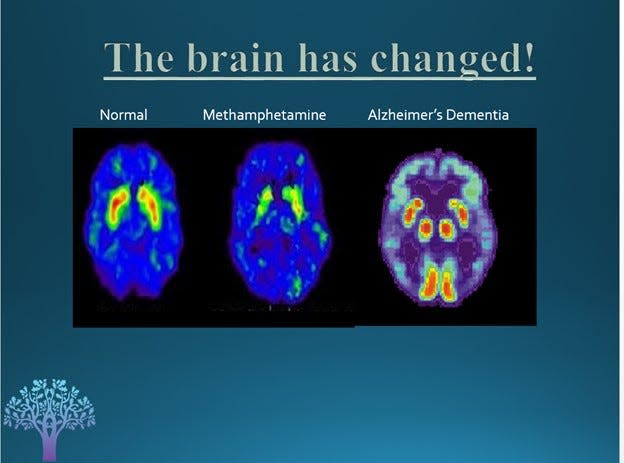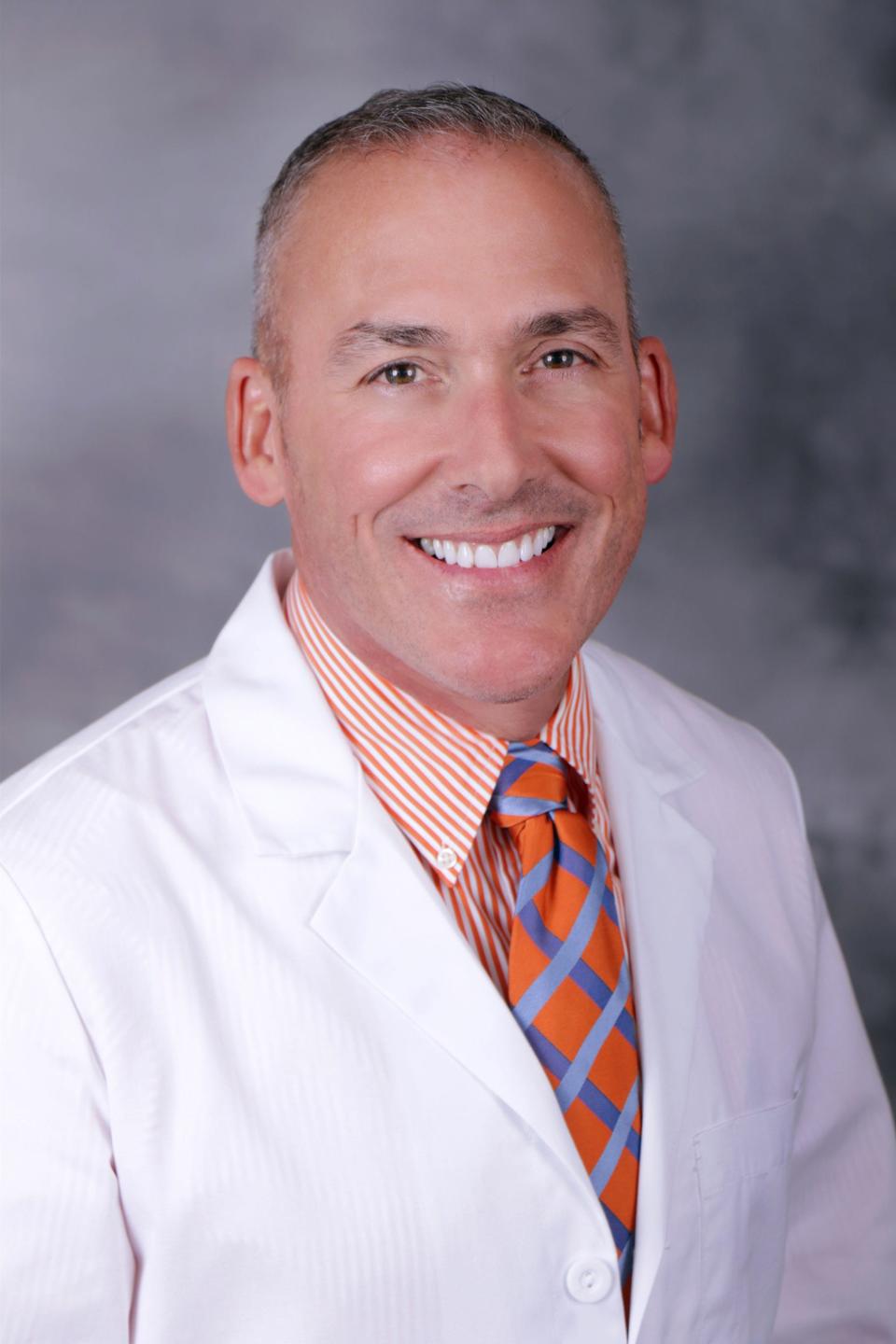Why do some people get addicted and some don't? It's not the drugs; it's the disease
What could drive someone to surrender everything most people treasure — family, livelihood, health and safety — in exchange for an experience that at best lasts hours, and at worst could be deadly?
By the time spouses, parents and others come to the Family Center for Recovery in Lantana to spend a weekend learning about the workings of addiction, they’ve watched a life unravel because of a compulsion that challenges comprehension.
To start, Dr. Robert Moran, who founded and runs the substance use treatment center, explains, it’s not the substance driving the spiral these families have witnessed, it’s the disease.
Post Investigation | Florida Shuffle: State's failure to oversee addiction treatment leaves patients in deadly danger

He is a psychiatrist and addiction specialist. He dedicates several weekends a year to educating his patients’ families with an eight-hour presentation. If they are not persuaded by the end of it that addiction is not a choice, he will gladly stay and answer questions, he tells them. So far he hasn’t had to.
“It's not the substance that is addictive — we don’t use that term that way,” he says. “It is the individual who was either born with the vulnerability conferred by one's genes and or has experienced trauma or neglect in early childhood.”
Dangerous new drug: Is 'tranq,' the 'zombie drug' that can cause amputations in Palm Beach County?

Those factors, he says, can set the development of the brain on a pathway creating the risk that a person, once exposed to a substance, will develop addiction, which is the most severe form of substance use disorder.
Only about 9% of adults who use cannabis on a regular basis go on to become addicted, he notes: “So 91% of adults do not. About 15% of adults who use heroin regularly develop the disease of addiction. So that’s very low.”
45% of opioid users develop addiction, not the majority
The most recent studies revealed that as much as 45% of people who use opioid pain pills go on to develop addiction. That’s still not the majority of people exposed, he says.
“So like so many other medical illnesses, one has to have the risk factors that then put him on that pathway to develop the disease, if and only if he gets exposed to the substance,” he says.
Addiction treatment: Sober home industry finds gold in laws meant to restrain it
In a person with the risk factors, the substance, when repeatedly used, causes changes in specific brain circuits – regulating judgment, impulse control, mood regulation, anxiety tolerance, the motivation reward system and learning.
“So in that person who’s presenting with what we wind up diagnosing as addiction, that brain has changed,” he said.
He shows family members a slide of brain scans of a person with a normal brain, a person with Alzheimer’s dementia and a person addicted to methamphetamine. The scans show less activity in the person with Alzheimer’s than in the person with a normal brain but less still in the person using methamphetamine.
The difference is that while the person with Alzheimer’s will continue to lose function, the person with addiction can recover normal brain activity over time, with treatment.
Read The Post's investigation How Florida ignited the heroin epidemic
Those changes induced by substance use in a person with addiction, along with the relentless pursuit of a substance can also result in addiction-related sociopathic behavior — a departure from a person’s normal principles and morals, making the person untrustworthy and unrecognizable to loved ones. That too ends when active substance use ends, he says.
Psychiatric disorders can complicate addiction treatment
The presence of an additional mental illness complicates the treatment of addiction, he says, and the majority of people who suffer addiction also have psychiatric conditions that can include bipolar disorder, depression, schizophrenia and post-traumatic stress syndrome.
Moran looks forward to advances that can help prevent addiction.
“Now we don't know who has those vulnerabilities necessarily early on, such that we can counsel those people: These are the genes you have. This is what your background has been. If you become exposed to alcohol, then you’re likely to develop the disease of addiction,” he said. “One day we’ll be able to do that. But although many many genes have been studied, there are probably many that all play a role and come together to create the vulnerability. That’s ongoing research.”
This article originally appeared on Palm Beach Post: What is addiction? It's not the opioids or marijuana. It's the disease

